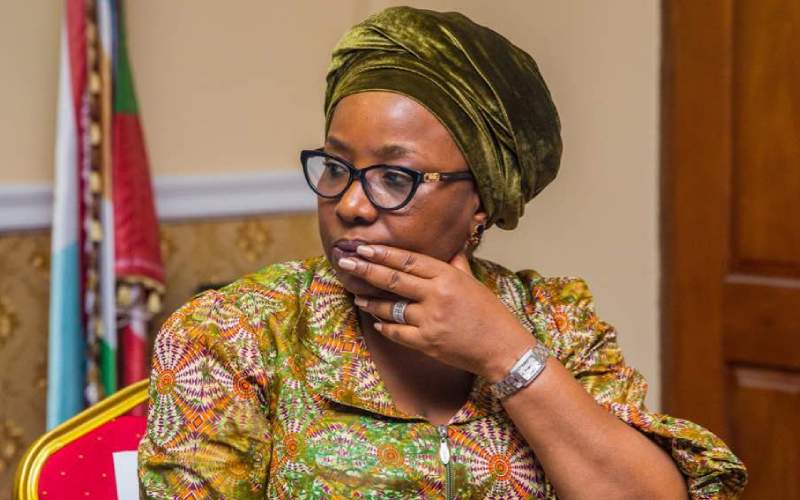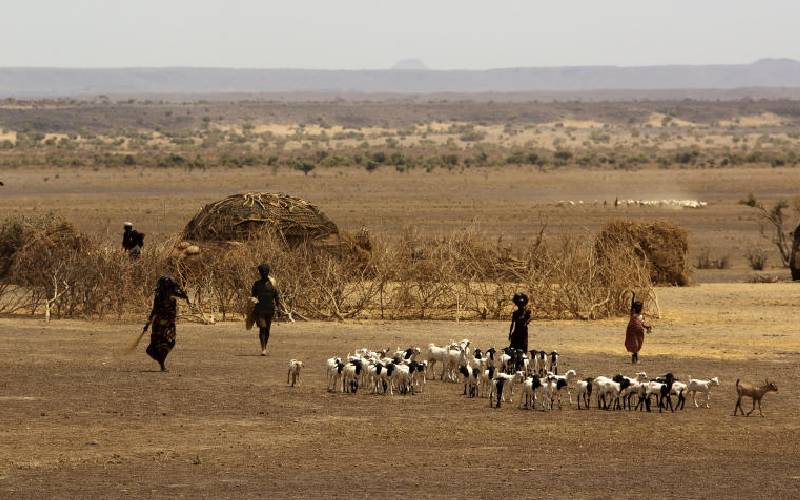[ad_1]

Sharon Ikeazor, Minister for the Environment, Nigeria [Courtesy]
Our continent is the most vulnerable to climate change, warming faster than the global average temperature, and the least able to afford the cost of implementing policies and practices that collectively make up what is called “adaptation” to climate change.
We will end up in our own destruction if we don’t adopt a new approach immediately. We must all agree that climate change is most threatening to Africa’s biodiversity, habitats, livelihoods, and ecosystems.
While climate change is accelerating the biodiversity crisis, we also risk African habitats’ loss and degradation if they are not managed according to best scientific knowledge.
When biodiversity is lost, water supplies are threatened and food insecurity increases. When fishing areas, forests, or grasslands are overexploited or polluted, especially by large corporations that have taken possession of indigenous inhabitants, it can threaten livelihoods.
These destructive activities reduce the ability of nature and other natural resources to provide food and economic opportunities. Just as a healthy person is more likely to survive major surgery and a healthy ecosystem will be able to withstand the effects of climate change.
We must therefore do our best to ensure the resilience and health of natural systems in order to provide food and economic benefits for the entire continent.
Many countries in Africa are ready and willing to decarbonize to protect their fragile ecosystems, and to restore their habitats. If the natural world is to survive, science clearly shows that protected areas are essential.
Without expanding protected and conserved areas to at least 30 per cent of the world’s surface by 2030, achieving national priorities such as climate mitigation, sustainable land and water management, food and energy security, and human security will be jeopardised which is why we must act now.
To achieve these goals, some countries with high ambitions like Nigeria have joined international alliances. Nigeria is a member of the High Ambition Coalition for Nature and People (HAC), a worldwide initiative advocating for the designation of at least 30 per cent of the Earth’s land and seas as protected areas by 2030.

Gabbra pastoralists North Horr August 2005 [Courtesy]
Nigeria is also a member the Blue Leaders, a group of countries that are determined to protect at least 30% of the oceans through a global network containing highly protected marine areas and a strong new global treaty.
Nigeria urges all African Union members to join the Blue Leaders and the HAC ahead of the 15th Conference of the Parties of the Convention on Biological Diversity.
We cannot solve the biodiversity crisis if we don’t unite behind protecting at least 30% of the planet by 2030. These initiatives are important, but they are costly. We must also match our ambitions for nature with our finances.
Experts agree that in order to combat biodiversity loss, we must increase our investment in nature protection to between US$ 500 billion and 900 billion annually. The bulk of this should be directed from developed countries to biodiversity rich middle and lower-income nations. The best results from investments in nature are achieved when priorities are set from the ground up, with donors and partners guiding countries on investment priorities.
Africa’s countries are keen to form funding partnerships to increase the impact of expanding protected areas. We have a clear understanding about the priority needs for sustainable investment across the subregion.
Nigeria will host an African nature finance forum in Nigeria in 2022. It will discuss the development of financing partnerships and the opportunities for development partners and philanthropies in investing in Africa’s natural recovery.
We are able to reproduce natural resources in Africa because we have both the technical and indigenous knowledge. We have the knowledge and ambition to lead a worldwide coordinated effort. We have the biodiversity to reestablish thriving ecosystems.
We don’t have a consensus between African nations on how to do this and how wealthy nations should finance it. They will benefit too.




